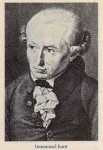This paper, written for a classical liberal audience, goes into the fault line running down the middle of the doctrine: does classical liberalism imply democracy? The libertarian wing, represented concretely today in the startup or charter cities initiatives, only requires consent (and exit) so the consent could be to a non-democratic pact of subjection. The democratic form of classical liberalism is represented by the mature James M. Buchanan who held that a liberal social order required people to be principals in their organizations who could only delegate but not alienate their rights of self-governance. That distinction is traced back to the Reformation inalienability of conscience that descends through the Enlightenment to modern times in the abolitionist and democratic movements.
Classical Liberalism and the Firm
This is a scan of my chapter in the new book: Commerce and Community: Ecologies of Social Cooperation, edited by Robert F. Garnett, Paul Lewis, and Lenore T. Ealy. London: Routledge, 2015.
On the Renting of Persons: The Neo-Abolitionist Case Against Today’s Peculiar Institution
To answer the “best case” voluntary-contractarian arguments for slavery and autocracy, the democratic and antislavery movements forged arguments not simply in favor of consent but arguments that voluntary contracts to legally alienate aspects of personhood were invalid “even with consent”—which made the underlying rights inherently inalienable. Once understood, those arguments have the perhaps “unintended consequence” of ruling out today’s self-rental contract, the employer-employee contract.
The Neo-Abolitionist Case Against Renting People
The talk presents the arguments from inalienable rights theory in a neo-abolitionist framework as making the case against the renting of people, i.e., against the employment relation–echoing the abolitionist case against the owning of people.
American Revolution Applied to Corporations
The basic idea of the talk was to take the fundamental principles of the American Revolution and apply them to the economic sphere.
Talk on Alienation versus Delegation at Troy University
These are the slides for a talk on Alienation versus Delegation at a conference on Philanthropy and the Economic Way of Thinking at Troy University, Troy, Alabama November 7, 2014.
Property and Production
This is the 30th anniversary of the publication of this paper, Property and Production, which laid out the whole property-theoretic analysis of production. I would not change a word today.
On Property Theory
This paper is an introduction to property theory including the invisible hand mechanism which handles the initiation and termination of property rights in an on-going private property market economy. The Fundamental Theorem is that when Hume’s conditions of no involuntary transfers and no breached contracts are fulfilled, then the Lockean principle of people getting the fruits of their labor, i.e., imputing legal responsibility in accordance with de facto responsibility is satisfied. The major application is to the current system of a private property market economy based on the renting of persons, i.e., the employment contract.
This is a reprint of the paper in the Journal of Economic Issues in Sept. 2014.
Kantian Personhood Principle
This paper formulates the labor theory of property and democratic theory in the context of the Kantian personhood principle to treat other persons always as ends in themselves and never simply as means.






